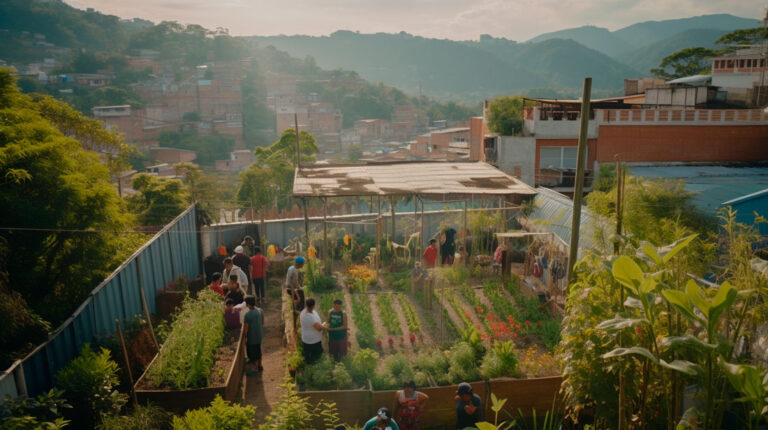Our actions
Systems thinking guide aimed at public officials
In brief:
The project involves creating a comprehensive guide that enables public officials to adopt a complex, system-oriented perspective.
This guide challenges conventional thought processes by fostering this shift, urging officials to grasp the intricate, non-linear dynamics that influence public policies and services. It pushes for a broader understanding of the inherent complexities in societal transitions, encouraging public servants to transcend typical frameworks and engage in innovative thinking.
The overarching aim is to equip these officials with the necessary understanding to contribute effectively to the imperative transitions that our urban environments currently demand.
Partners:
- iBO – Bogota’s Public Innovation Lab
Sector:
Public sector
Location:
Colombia
Year:
2024

We have co-written this systems thinking guide because we believe it is essential to change how we approach and plan interventions for the different problems and challenges we face as a society. We want to awaken public officials’ potential and vision and offer them a new way of addressing challenges through innovative approaches.
We recognize the importance of broadening our approach and understanding of city challenges. This is why we consider it relevant to share, in a practical way, how systems thinking is critical to bringing innovation to the public sphere.
Addressing complex problems and achieving significant changes in the public sphere is not easy. Often, problems are too complex to be solved by isolated individuals or teams. That is why an innovative approach and a systemic mindset are needed to understand problems holistically, and thus act articulately and effectively.
This guide not only provides an understanding of complex systems and how to address them but also aims to provide practical concepts so that public officials at any level can make effective decisions and generate significant changes in the systems in which they are immersed.
Throughout the guide, we will also provide specific exercises to support each concept and idea. These exercises are designed to help you broaden your perspective, apply the principles and techniques of systems thinking in your daily context, and facilitate the development of capacities or skills to influence, that is, to gain “agency” over the socio-technical systems you serve and over the organizational system in which you operate.
In this way, public officials will be able to appreciate the direct impact of their learning on their ability to make positive changes in the systems they work with.
What is the purpose of this guide?
As citizens and public sector stakeholders, we believe our urban problems are overwhelming or intractable. But it also offers opportunities for change and improvement. By understanding cities and the public sector as systems, we can see how changes in one component can influence other components and how we can work to make our urban and public systems more equitable, sustainable, and resilient.
For this reason, public officials need to train their skills in systems thinking. This guide is created for this purpose.

What does this guide contain?
The concept of systems thinking is introduced throughout its sections, exploring how systems, their complexity, and the interrelationship between their components influence the formulation and solution of public problems. It highlights the importance of understanding systems not only as closed entities but also as open and constantly evolving ecosystems, which requires an adaptive and flexible approach to change and management of these systems.
In addition, the guide delves into how we perceive and relate to these systems, urging a critical revision of values and beliefs to adopt more inclusive and diversified perspectives. Promoting a shift to a more holistic, critical, and pluriversal view encourages a shift from mere problem-solving to problem dilution through experimentation, continuous learning, and innovation.
The guide culminates by offering a set of practical tools for implementing these ideas, promoting more conscious and effective change management that not only addresses current challenges but also paves the way for future systemic transformations.
Bottom line
Systems thinking is not an end in itself but a tool. It empowers us to “dilute” problems, creating interventions that transform the underlying conditions that generate them rather than treating their most apparent symptoms. This approach recognizes that “one-size-fits-all” solutions rarely work in complex systems and that continuous learning and adaptation are critical to the effectiveness of interventions.
In the Latin American context, with its profound diversity and unique challenges, systems thinking can be a powerful catalyst for innovation. It allows us to work towards a future where our cities and public institutions reflect the rich complexity of our ecosystems and communities and where interdependence is seen not as an obstacle but as a source of strength and resilience.
Ultimately, this approach challenges us to reinvent our cities and public sector not as controllable machines but as living systems that can be supported, nurtured, and cultivated toward prosperity that honors the interdependence of life.
In every city, public institution, and public official, there is a space for transformation that systems thinking can unleash.



